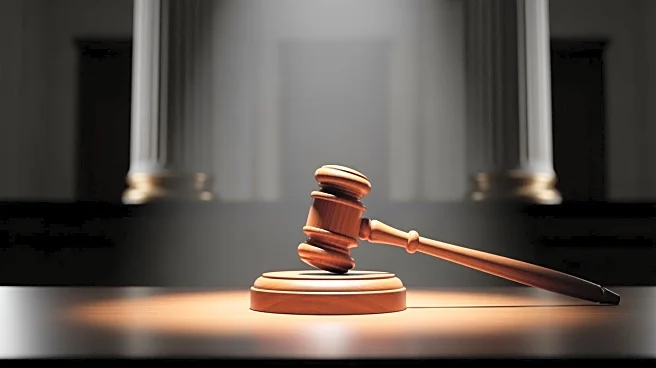What's Happening?
A federal judge in San Francisco has blocked President Trump's attempt to impose a $1.2 billion fine on UCLA and cut nearly $600 million in funding to the University of California system. The ruling came
after faculty and staff, represented by the American Association of University Professors, presented overwhelming evidence that the administration's actions were ideologically motivated. The judge's decision mandates the resumption of funding, which had been halted as part of a broader campaign against universities perceived to be opposing Trump's ideological stance. Despite the victory, the University of California system still faces the potential loss of over $1 billion in federal research funding, and the government is expected to appeal the ruling.
Why It's Important?
The ruling is significant as it highlights the ongoing tension between the Trump administration and higher education institutions, particularly those in California. The University of California is a major public university system, contributing significantly to research, healthcare, and the economy. The funding cuts threatened to undermine these contributions, impacting innovation and national security. The decision also underscores the legal challenges faced by educational institutions in resisting political pressure, and the broader implications for academic freedom and free speech. The case reflects the administration's use of funding as leverage to enforce ideological conformity, raising concerns about the politicization of federal grant allocations.
What's Next?
The University of California system may continue negotiations with the White House, although details of such talks remain undisclosed. The government is likely to appeal the ruling, potentially taking the case to the Supreme Court. The outcome of these legal battles could set precedents for how federal funding is used as a tool for political influence. Educational institutions may need to prepare for prolonged legal and financial challenges, as the administration has shown willingness to use extensive investigations and funding threats to achieve its goals. The situation remains fluid, with potential implications for other universities facing similar pressures.
Beyond the Headlines
The case raises deeper questions about the role of government in regulating academic institutions and the balance between political influence and educational autonomy. The administration's actions have been criticized as infringing on free speech rights and using antisemitism as a pretext for ideological enforcement. The broader campaign against universities reflects a cultural and political battle over diversity, equity, and inclusion initiatives, which have become contentious issues in the current political climate. The legal proceedings may also influence future policies on federal funding and the protection of academic freedom.









